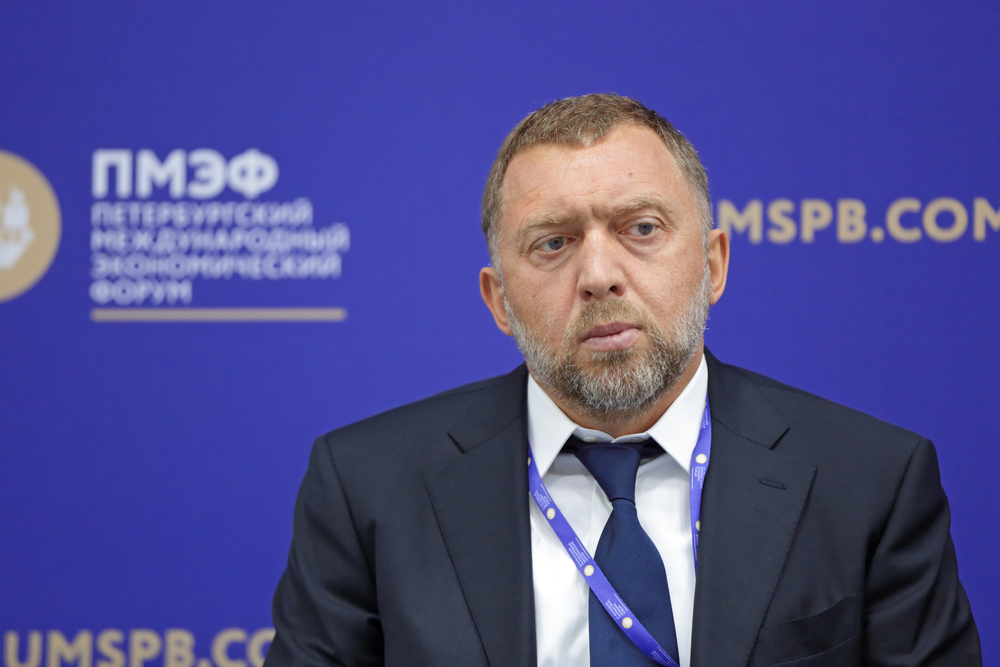Aluminum surges on concern US may reapply Rusal sanctions

Aluminum surged to the highest in more than two years on speculation that the U.S. could reapply sanctions on one of the world’s largest producers.
European officials sent an assessment to U.S. officials earlier this year concluding that Oleg Deripaska retained significant day-to-day influence over United Co. Rusal International PJSC, despite significantly reducing his ownership stake almost two years ago as part of an agreement with the U.S. to lift sanctions on the producer.
Renewed U.S. sanctions on Rusal could crimp global supplies of the metal. Aluminum surged in April 2018 when the government first announced that it was sanctioning Russian individuals and firms, including Rusal, to retaliate against Moscow for their roles in what the U.S. Treasury termed “worldwide malign activity.” The action caused concern that supply would be severely limited, and sent buyers scrambling to obtain metal in any form that they could get their hands on.
“Aluminium has not been loved like the other metals in recent months,” Michael Cuoco, head of hedge-fund sales for metals and bulks at StoneX, said by email. “But if something like this is even percolating in the background, just rewind the tape to 2018, when the mighty metal rallied from $1,980 to $2,718.”
“Aluminium has not been loved like the other metals in recent months”
Michael Cuoco, head of hedge-fund sales for metals and bulks at StoneX
Russia’s primary aluminum output accounts for about 6% of global supply, with Rusal being the top supplier in Europe and among the top five in the U.S., according to Harbor Intelligence. Aluminum for delivery in three months rose 1.3% to $2,061 a metric ton in London, after earlier touching $2,096 a ton, the highest since October 2018.
”If this leads to a repeat of what happened in 2018, there’ll be a huge impact on the aluminum market, with possible more sanctions on Rusal likely tightening the market and a boost to aluminum premium,” said Wenyu Yao, senior commodities strategist at ING Bank.
After the sanctions announcement in 2018, Rusal wanted to secure its survival with a plan to reduce Deripaska’s influence at the company. The plan, known as the Barker Plan, named for En+ Group Plc Chairman Greg Barker, cut Deripaska’s shareholding to below 50% in En+ and appointed a majority of independent directors.
After sanctions were lifted, Deripaska’s stake in En+ that controls Rusal declined to about 45%. Rusal shares fell as much as 10% and traded down 5% at 5:43 p.m. in Moscow.
En+ said in a statement that it strongly refutes the allegations made in the article.
“This case is political and hard to say if the letter may lead to sanctions,” Kirill Chuyko, chief of research at BCS Global Markets said by phone. “There is no signs that Deripaska affects management’s decisions in Rusal or En+, but he is still the largest shareholder and probably tracks what is going on in the company.”
Rusal and En+ operational management was kept nearly unchanged when the company emerged from the sanctions as Treasury only demanded the board to be formed from independent directors and for Deripaska to relinquish control, which was done, Chuyko said.
(By Joe Deaux, Mark Burton, Yvonne Yue Li and Yuliya Fedorinova)
{{ commodity.name }}
{{ post.title }}
{{ post.date }}




Comments